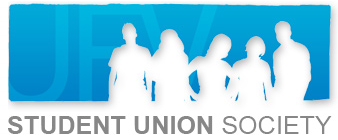By Paul Esau (The Cascade) – Email
Print Edition: July 18, 2012
The rules for SUS referendums at UFV just became a lot tougher – and about three times as long.
Last week, the SUS board passed an amendment to the formerly half-page referendum policy which includes new regulations for proponents (SUS or otherwise) wishing to hold referendums, as well as an increase to the length of the polling period and voting majority needed to pass a referendum. The new policy states that the polling mechanism on myUFV must be open for 72 hours over no less than four business days, and a referendum question needs at least 60 per cent approval to be actionable.
The referendum policy came under serious scrutiny during the Winter 2012 semester when the Athletics department and Student Life launched a referendum facilitated by SUS to create a new student fee. While the referendum passed by a vote of 849-701, no action was taken to implement the fee due to a SUS Board violation of its own bylaws. The novelty of the process (SUS facilitating a referendum for an outside group), coupled with student complaints about the ambiguity of the referendum policy itself* persuaded some members of SUS that there was a need to revise the policy.
Greg Stickland, VP Internal and chair of the committee assigned to the task, said that the revision has been a long process: “Carlos [Vidal] and the rest of (SUS) got some feedback … that the question and answer periods [for a referendum] had to be a week before the polling period, yet [the question and answer period for the Athletics Referendum last spring] was held on Friday afternoon [the polling opened the following Monday]. A lot of people were under the impression it was five business days, so Carlos was like ‘just make that change and it will be quick and easy’… so I noticed some things and made some changes and then brought it to Carlos and he noticed some things and made some changes and brought it to governance, and they scratched their head and made some changes, and two-and-a-half months later here we go.”
Another issue that students had brought to the attention of the board was a perceived lack of information about the Athletics referendum. The new policy requires three question and answer periods (formerly only one was required) to be held on at least two campuses at least five business days prior to the beginning of the referendum. As well, Stickland believes the stricter approval percentage will motivate the proponent (group initiating the referendum) to work harder to inform the student body.
Stickland explained that the decision to raise the percentage of votes needed to “action” a referendum was the most difficult part of the revision. “That decision,” he said, “was a long and arduous debate even down to the very last moment … our final decision was either 66 [per cent], being two-thirds, or 60 [per cent]. The final decision was five [board members] for 66 and five for 60, leaving me with the final vote since I was chairing that particular motion. I voted 60 just to make it more moderate. I feel that 66 was pretty ridiculously high.”
“Our referendums are pretty serious business, so the decision was made with the notion and ideal that if [one] were to pass a big thing like a new fee or a new program that we want to have a good majority of approval for it from a good amount of students.”
According to Stickland, there are two possible referendums in the works for the coming year, both of which would be carried out under the new policy. The Athletics department may attempt a second referendum, and SUS may hold a referendum pertaining to the Health and Dental Plan.
Revising the policy has been “just a matter of trying to find a happy medium and thinking up solutions without being too punishing,” said Stickland. “That said I’m always open to feedback … I’m not a closed door, I love talking policy.”
*See former Sports Editor Sean Evans’s article on the subject


